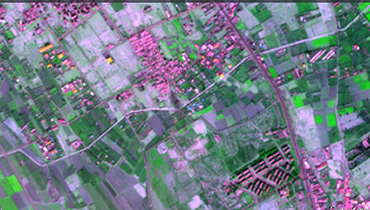2020 - Capacity Development Strategy Empowering the Decentralized Governments of Ecuador towards Local Climate Action
| Autores: | Dorothee Baum, José Luis Yagüe Blanco y Julio Escobar |
| Título: | Capacity Development Strategy Empowering the Decentralized Governments of Ecuador towards Local Climate Action |
| Revista: | ScienceDirect / Journal of Cleaner Production / Elsevier Ltd. |
| Volumen: | ISNN: 0959-6526 |
| Páginas: | Articles in press |
| Fecha: | November 2020 |
| Lugar de Publicación: | Amsterdam, Países Bajos |
| Enlace: | Pinchar aquí |
ABSTRACT
The impacts of climate change are predicted to negatively impair the improvements made towards achieving the Sustainable Development Goals (SDG), especially in developing countries. Uncertainty on specific actions and strategies remains, leading to a research-implementation gap. For Ecuador, one of the key challenges to local adaptation are the institutional capacities of the decentralized autonomous governments (GAD, Spanish acronym). Therefore, the objective of this study is firstly to apply a capacity development strategy developed by GIZ (2013a) in the context of limited knowledge and resources and secondly gain a deeper understanding of climate action in Ecuador on a provincial level. The case study is based on an experimental participatory workshop in the coastal province of Santa Elena, Ecuador. The applied methodology has three components: firstly, semi-structured expert interviews on climate action in Ecuador; secondly, the participatory workshops with technicians and employees of the provincial government, its analysis together with a pre-, post- and two-months-after the workshop follow-up survey; thirdly, the analysis of the workshop is complemented by a peer validation of the co-facilitators. The analysis of the workshop suggests that in a context of limited institutional capacity, an understanding of climate change terminology, vulnerability and adaptive capacity is crucial to interpret predictions and to motivate action. Additionally, results indicate that pairing the content of the seminar with elements of project management might also strengthen local planning and longevity of rural development measures. Overall, the methodology of GIZ might therefore not be suitable in the local context due to its fast pace and difficult terminology. A more promising approach to foster local climate action is the Design-Thinking (DT) methodology due to its easier accessibility. Based on the insights of the case study a capacity development strategy incorporating DT offers lessons learnt for practitioners aiming to promote local climate action in comparable institutional contexts of limited knowledge and resources. As limited knowledge and resources are often main barriers to climate action, developing capacity building strategies will in turn foster climate action.
Keywords: Local climate action; Institutional capacity development; Street level bureaucracy; Design-Thinking; Ecuador













